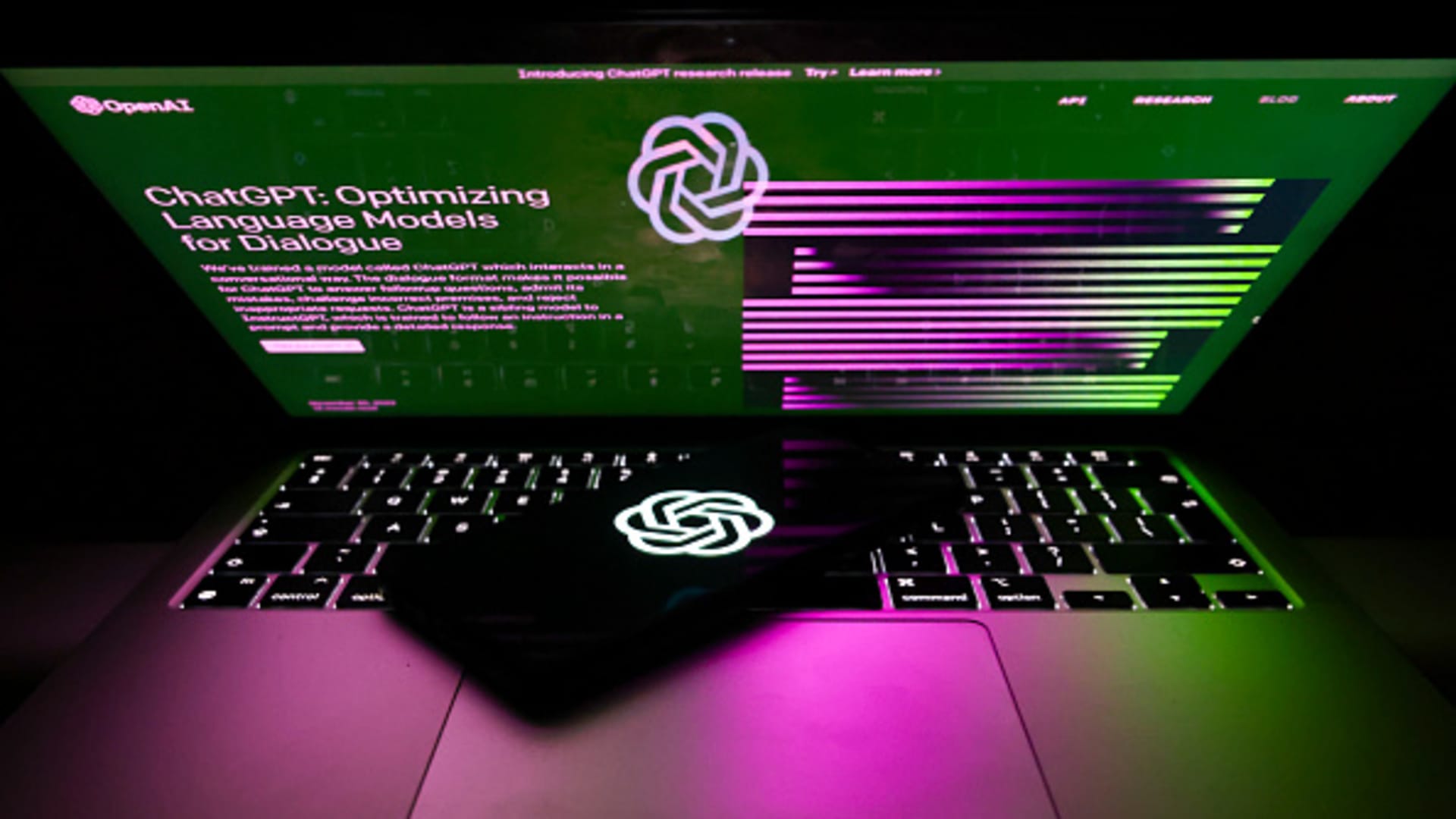
The ChatGPT and OpenAI emblem and website.
Nurphoto | Nurphoto | Getty Images
OpenAI CEO Sam Altman on Tuesday disclosed a bug that allowed some users of its popular AI chatbot ChatGPT to view messages from others.
“We had a significant issue in ChatGPT due to a bug in an open source library, for which a fix has now been released and we have just finished validating,” Altman tweeted.
“A small percentage of users were able to see the titles of other users’ conversation history.”
Some users had reported seeing messages from others as early as Monday.
One person on Reddit reported spotting previously unseen chats in the side bar, including conversations titled “Xi Jingping’s Six Principles” and “Chinese Socialism Development.”
Another person on Twitter shared a screenshot of their ChatGPT, showing chat titles from conversations they had never had.
OpenAI temporarily disabled the chatbot on Monday after the company heard about reports of other peoples’ chat histories being visible, a spokesperson told Bloomberg.
“We feel awful about this,” Altman said in a tweet Tuesday.
The issue has since been fixed. Altman said that, as a result of the fix, users would no longer be able to see chat histories for ChatGPT conversations that took place between 1 a.m. and 10 a.m. Pacific time on Monday, March 20.
ChatGPT exploded in popularity shortly after its November launch. The tool lets users type in prompts to generate human-like responses by using what is known as a large language model, powered by vast amounts of data.
People have used it to pen school essays, song lyrics, and even generate lines of code for software.
By January, ChatGPT had amassed 100 million of monthly active users only two months into its launch, making it the fastest growing consumer application in history, according to a UBS note published last week.
It took TikTok nine months to reach 100 million users, with Instagram achieving the same popularity after two and a half years.




